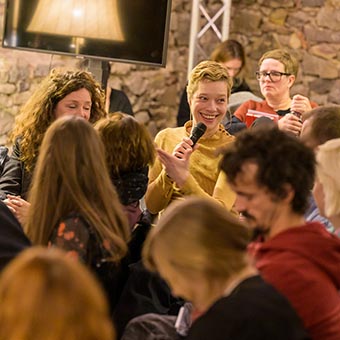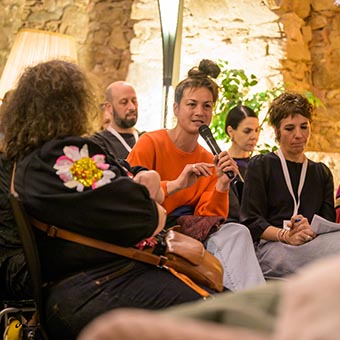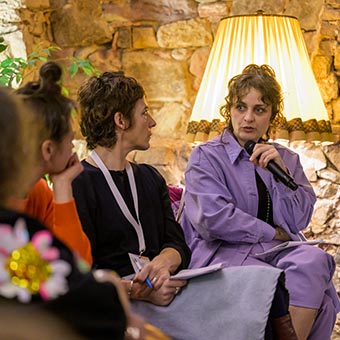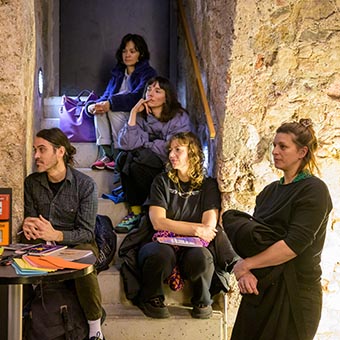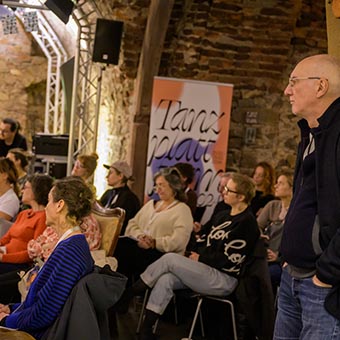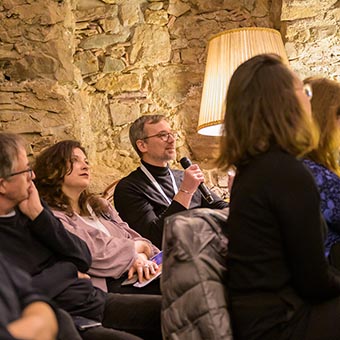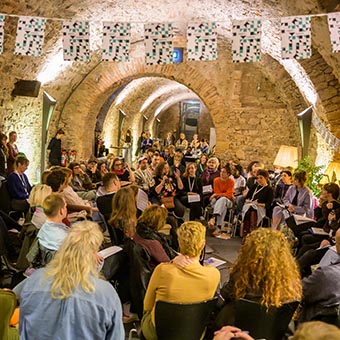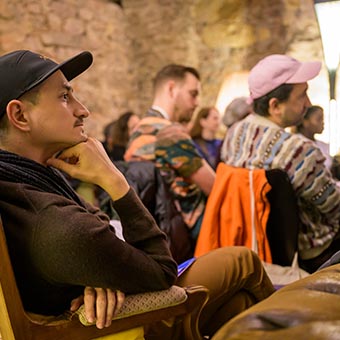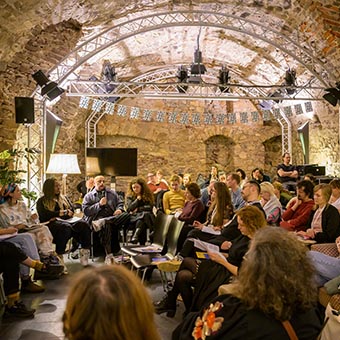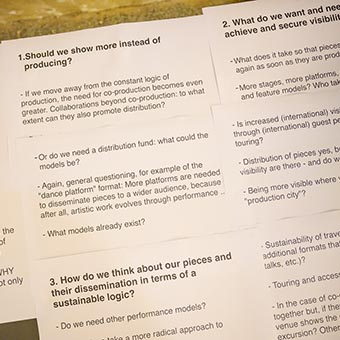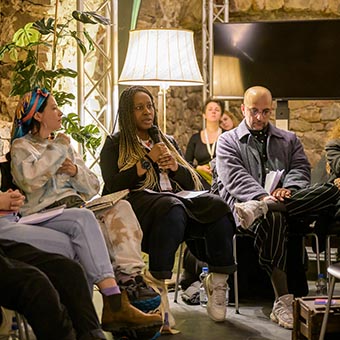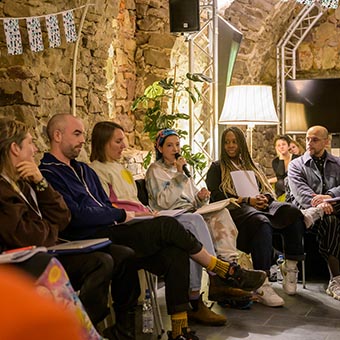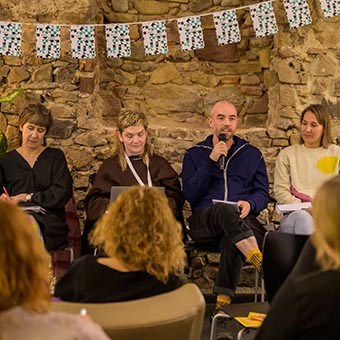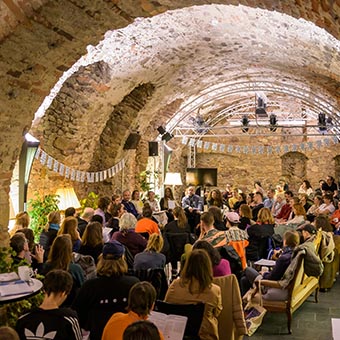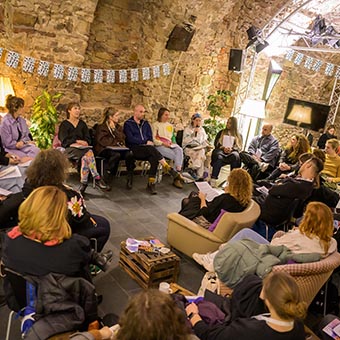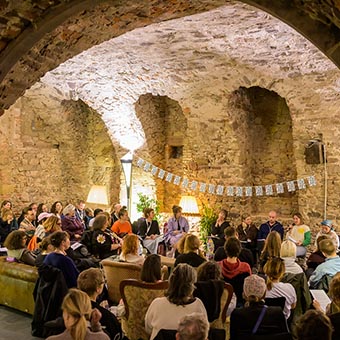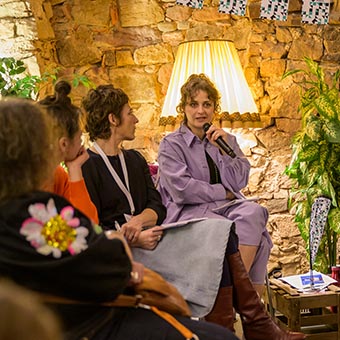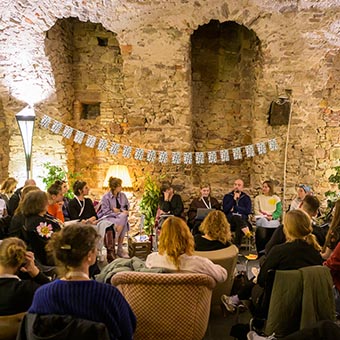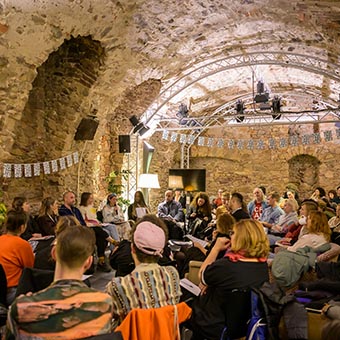Tanzplattform Deutschland 2024
February 24, 2024, 10:00 – 11:30 am, Peterhofkeller, Freiburg
With the artists & producers: Angela Alves, Jenny Beyer, Anna Kempin, Anne Kersting, Godlive Lawani, Sheena McGrandles, Hannah Melder, Antje Pfundtner, Line Rousseau, Rui Silveira, Stephanie Thiersch, Ursina Tossi, Charles Washington
Moderator: Felizitas Stilleke
An event in the context of Kreativ-Transfer in cooperation with the Goethe-Institut, Antje Pfundtner in Gesellschaft and the dance professionals producing in Germany mentioned above. The initiative for the event was created within the exchange group on the subject of “Distribution” involving: Antje Pfundtner in Gesellschaft (Anne Kersting, Hannah Melder, Antje Pfundtner), Jenny Beyer, Josep Caballero Garcia, Fabrice Mazliah, Sheena McGrandles, Stephanie Thiersch, Ursina Tossi, Elke Weber and Katharina von Wilcke.
Together with Kreativ-Transfer, a support program of the Dachverband Tanz Deutschland, and the Goethe-Institut, dance creators explore the question of their work’s visibility: What has to happen so that pieces don’t disappear directly after being produced? More stages, more platforms, shared presentation or feature models? And who will take on the responsibility for remaining visible? And will an increased (international) visibility be reached simply via (international) guest performances and touring?
The necessity to produce contradicts the pledge of sustainability – this seems to be an assumed consensus. But how can sustainability function as a repeating and self-determined artistic practice? Can art creators position themselves with the dissemination of their products in the market by not leaving guest performance politics to the inviting institutions? What are future production and dissemination paths that originate from the art world, and how can the sustainable expectation of more touring, instead of constantly creating new works, be reconciled with the fact that there are not enough stages for everyone?
With the background of these burning questions about the guest performance situation in Germany, a group of dance makers offers an invitation to discuss the respective spheres of action for dance makers as well as federal grant and theater structures that are designed to create surplus production.
An event in the context of Kreativ-Transfer, a support program from Dachverband Tanz Deutschland, supported by the Federal Government Commissioner for Culture and the Media. In cooperation with the Goethe-Institut and Antje Pfundtner in Gesellschaft, funded by TANZPAKT Stadt-Land-Bund with the support of the German Federal Government Commissioner for Culture and the Media.

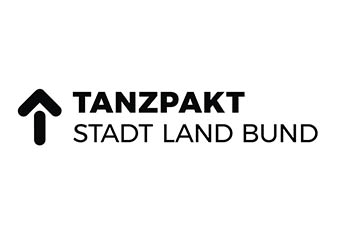
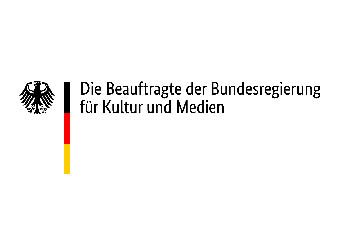
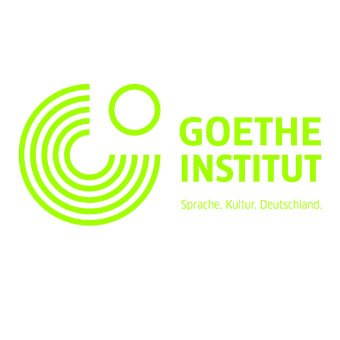
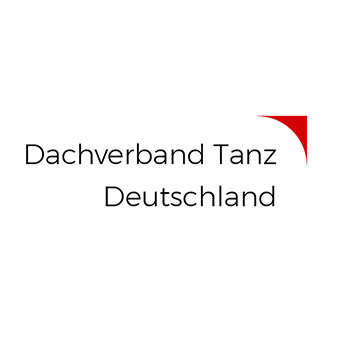
Photos
Photos: Marc Doradzillo
Press
“‘Who cares who’s watching!’ is the question that some of the festival participants will deal with on Saturday morning. In an open discussion round, structural problems regarding the visibility, distribution and circulation of the work of dance professionals in Germany will be addressed. The focus will be on demands on artists that go far beyond the actual artistic process, premiere pressure and the difficulties of revivals and touring, inefficiency within funding structures and the need for reliable long-term collaborations. The interest in this event is great, the Peterhofkeller is full. It shows the necessity of this format and certainly also that there have been too few of them in Germany to date. As a starting point for the discussion, the introductory round referredto a study by Onda France (www.onda.fr), according to which half of all plays produced in France are only shown once or twice. According to general experience, the situation seems to be similar in Germany.
It is an emotional discussion, not only when broader topics such as the demobilization of local art scenes by touring Western companies are addressed. You can sense how much pressure, frustration and existential hardship this entails for those involved. Sobering, as always at this point, is the reference to the distribution of funding in Germany, where the lion’s share goes to the municipal theaters, leaving only a relatively small pot for independent production centers, festivals and freelancers.
In view of this year’s dance platform, which is atypically being hosted by Freiburg’s municipal theater, the question arises, for example, of how Theater Freiburg could also strengthen the local dance scene by cooperating with local dance professionals.
There are many questions in this round, but they cannot – of course – be answered here. What remains is a call for communication and a kind of final appeal to finally put an end to the widespread misconception that artists have to tackle these problems alone. ‘Nobody can!'” Rachel Oidtmann/ tanzschreiber@TPD24 (a cooperation between Tanzbüro Berlin and Tanzplattform Deutschland 2024)
Translated with DeepL.com (free version)

